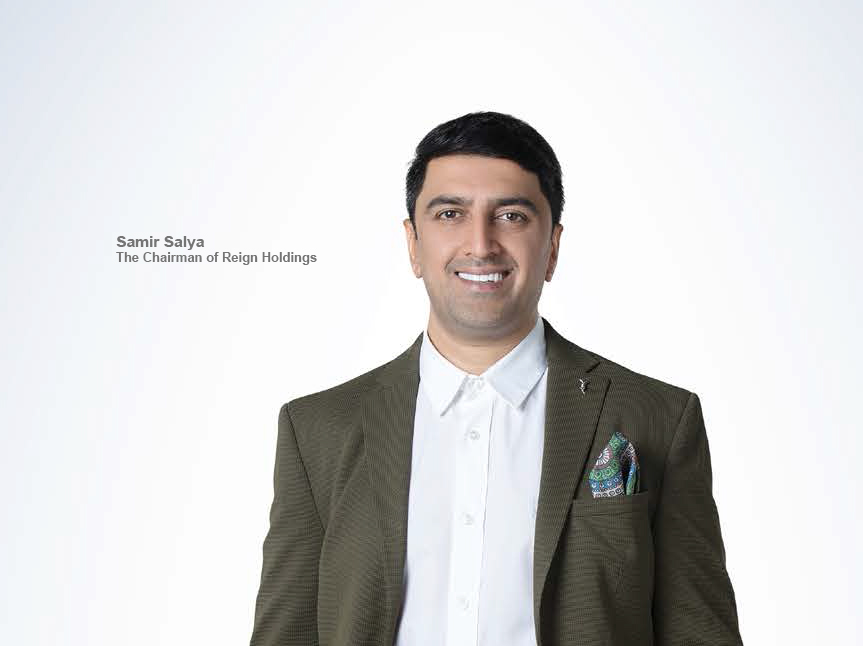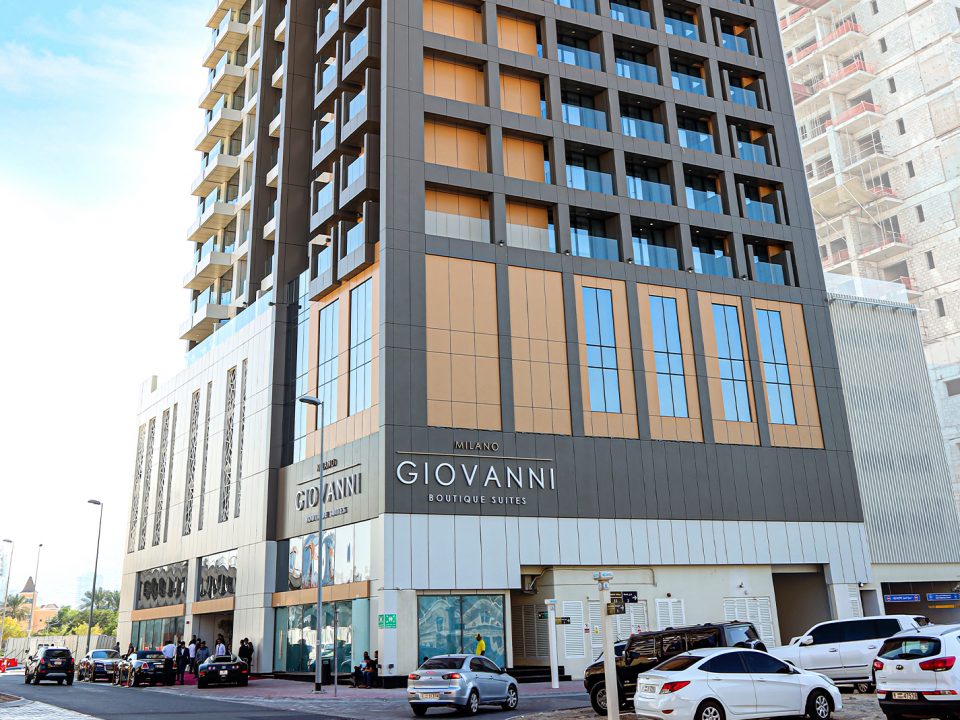

Reign Holdings Chairman Samir Salya Named by Forbes Middle East as One of the Top Indian Leaders in the Arab World
28 June 2018
GIOVANNI completes $50m Milano luxury apartment hotel in JVC
30 December 2019Samir Salya, Chairman of Reign Holdings, talks about the group’s multi-billion-dollar developments in the Europe and Dubai based real estate markets, and his own identity as a leader.
Coming from a fashion business background initially, what inspired you to form Reign Holdings?
In the textile industry in the UK, business was booming in the late 70s and early 80s, and the group’s focus was mainly on expanding our coverage. Unfortunately, in the early 2000s there was a downturn as Asia’s prices were unbeatable and competition became very tight.
By that time, however, we had our foot in the property investment market already. By the late 80s we had started to set up teams focused on buying blue chip investment stock, with favorable returns across the UK. We started to build our first residential development site in the UK in 2000. The success of this 12-unit residential development led us into a whole new industry. We started developing in the UK, and we entered other markets in Bulgaria, India and the U.A.E.
What was one of your most challenging projects?
It was one of my first projects in Dubai; around 400 apartments in Dubai Sports City. That was actually a very good learning experience, because we started the project and then the credit crisis kicked in, so a lot of clients were facing financial difficulties.
We had to go back and re-negotiate all the payment terms with the contractors while handling 400 clients. 50% of the clients wanted construction to go ahead and 50% wanted a refund, so we restructured the whole deal again.
The shell of the project was there, the interiors had to come in, funding was required, and 50% of people didn’t have the financial resources to pay. At the same time regulations were coming in to tighten the market. In the UK the cost of construction was rising. So, all of that was happening at the same time and we still delivered the project.
What are the major projects in your current pipeline and how much are you investing in them?
We plan to invest around $1 billion to $1.5 billion in Dubai in the next three years. Our JVC projects are mainly concentrated on hospitality and hotel apartments and will allow us to deliver over 1,000 units.
Every project of ours is named after an Italian city. Italy has always brought me luck and I brought that to the building trade. The Milano development is 95% ready. We’re also started ground work of the Naples project, which is about 204 apartments, and then we’ve got another four projects in the pipeline, which we will be breaking ground on as soon as the approval process is done.
Other projects in various stages of development include hotels and residential towers in Dubai Marina, Meydan and the Business Bay areas. We also have development plots in the iconic World Islands and Palm Jumeirah under designing process.
How hands-on are you in the business operations?
Very—it’s hard to let go when you have built something from nothing. I give my staff the independence to think and manage their own tasks so that they strive for success but have an ear on the ground in case things go astray.
My morning consists of meetings with different departments to touch base. Often, the CEO & CFO of each department get instructions from me and are given targets with incentives. I oversee the departments no matter how big the issue is—from securing a $50 million property acquisition to editing a brochure for the sales department. I have zero barriers with the staff and this environment makes everyone happy and productive.
Coming from a family business, how did you find your own identity as a leader?
I learnt from the outset the real value of cost saving and efficiency and to run things as simply as possible. Being the eldest in my family I guess I naturally fell into the role of being a leader. I had to pay attention to situations without having the ability to fail, so the pressure was always on.
I arrived in Dubai in 2003. Evolving as a leader in the U.A.E. was extremely challenging as the business culture and mentality is so different to the UK. Being a leader is all about evolving and problem solving and I would say that has been my greatest asset to date on driving businesses forward for the group.
What are the key issues affecting the construction business at the moment?
It’s a difficult market for new property developers to enter. For contractors, banks and investors to make a development work you need a good track record. Nowadays customers have a wide choice of units to buy or rent. So as developers you need to create a quality product. If it has a niche, even better, as you have to make your development stand out from the crowd. Customers want better design, better management, better amenities. All this raises the construction cost and makes the smaller quick-buck developers stand out from the quality and efficient developers.
Do you plan on expanding into any new sectors?
We have a master plan that by 2020 we need to employ 500 more staff and build an additional 3,000 units globally. We are half-way there and need to drive hard in the next few years to meet our target.
We intend to expand our building maintenance brand, Easy Fix, in both the Middle East and Europe. As well as the Huda Hotel, we are creating a brand that provides first-class services to customers throughout all our developments. We intend to be number one in the market when it comes to hospitality, facilities management and developments.
In the UK we continue to grow our residential developments along with commercial investments. In the next three years we intend to build 1,500 units in mixed residential schemes. We are looking to build on our charity projects throughout the world by offering free medical healthcare to those that need it. We hope to supply more beds and create independent smaller units to facilitate medical care in areas that are unreachable.
Related posts

Copyrights © 2020 Reign Holdings. All Rights Reserved.


